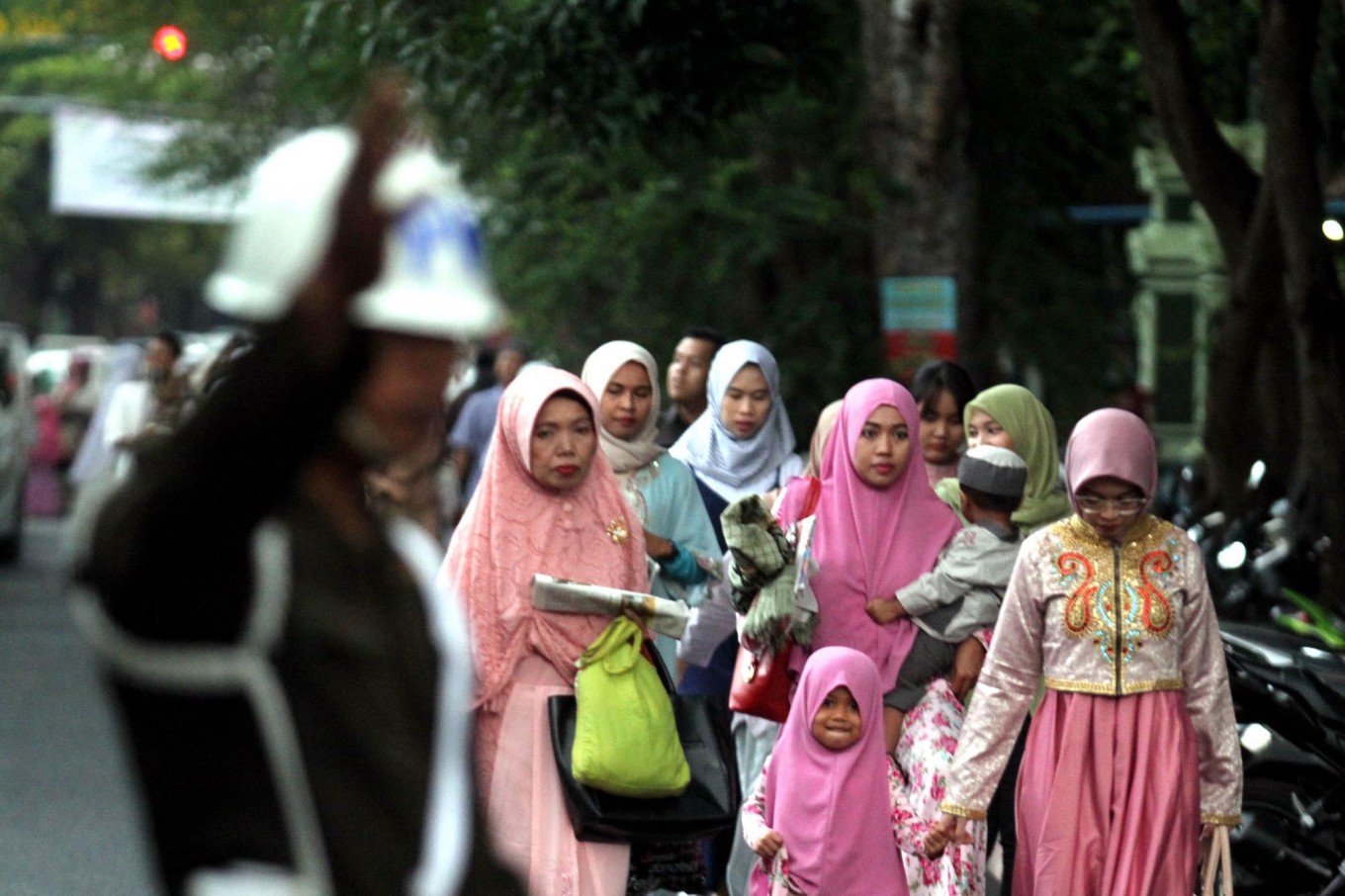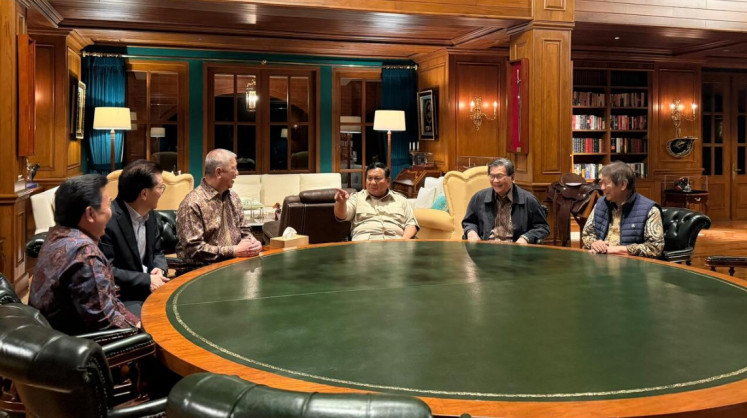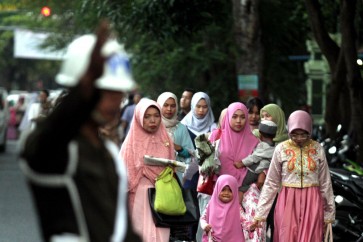Popular Reads
Top Results
Can't find what you're looking for?
View all search resultsPopular Reads
Top Results
Can't find what you're looking for?
View all search resultsNeng Dara Affiah: Her jihad against Muslims' schizophrenia
Neng Dara, currently a lecturer at Nahdlatul Ulama University and former commissioner of Komnas Perempuan, recently launched two books at the National Library of Indonesia, both published by Obor Foundation.
Change text size
Gift Premium Articles
to Anyone
S
chizophrenia. We’ve all heard of this disorder, right? This is the short, non-medical definition I found in a dictionary: “A mentality or approach characterized by inconsistent or contradictory elements.” Some would call it, hypocrisy.
We all know people like that, don’t we? What if I said that Muslims are currently suffering from this mental illness? It falls into the category that some scholars call “cultural schizophrenia,” whereby an entity is “crushed between two or more cultures, disabling them from balancing the dictations of the cultures.”
In the case of Islam, in Indonesia as well as elsewhere, it’s the failure of conservative and fundamentalist Muslims to reconcile Islamic teachings and values with modernity and the principles of human rights and democracy. It has a lot to do with the negative patriarchal values that imbue conservative Islam which sees women and “the other” (minorities, non-Muslims, etc., in short, others different from their prescribed brand of Islam) as being inferior, and subject to their judgment, dictates and control.
It’s this deep disillusionment and dismay not just at conservative Islam, but mainstream Islam in Indonesia that has led Neng Dara Affiah to be involved in decades of activism as well as scholarship. She feels it has strayed from the true tenets of a religion that is about peace, tolerance and mutual support.
Neng Dara, currently a lecturer at Nahdlatul Ulama University and former commissioner of the National Commission on Violence Against Women (Komnas Perempuan), recently launched two books at the National Library of Indonesia, both published by Obor Foundation.
The first book, entitled Portrait of Progressive Indonesian Muslim Women, is based on her PhD dissertation, a detailed and systematic account of progressive Muslim women’s movements in the New Order and Reform Era.
The second is tantalizingly called Islam, Women’s Leadership and Sexuality, an anthology that tackles issues deemed sensitive in Islam: women’s leadership, polygamy, the hijab, virginity, child marriage and sexuality. She also writes about radicalism, sectarianism and Muslim feminist movements as a means to restore Islam’s true values.


















